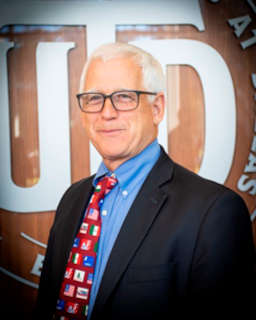
A free-market economy is not only good for business, it helps improve society as a whole, according to Dr. David Henderson, who gave the keynote speech at a daylong seminar held Nov. 2 by the Naveen Jindal School of Management’s Colloquium for the Advancement of Free-Enterprise Education (CAFÉ).
“Economic freedom leads to wealth. … It breaks down discrimination, it improves charity, and it creates virtue,” said Henderson, emeritus professor of economics at the Naval Postgraduate School and a research fellow at Stanford University’s Hoover Institution.
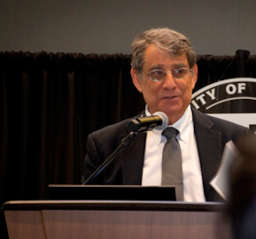
Dr. Peter Lewin, director of CAFÉ and a Jindal School clinical professor of finance and managerial economics, said Henderson’s message fit perfectly into CAFÉ’s mission “of advancing free-enterprise education and getting people to think critically about the business environment and how it matters to people in the real world.”
Henderson was one of several experts who spoke at the Davidson-Gundy Alumni Center during the seminar, “Freedom and Prosperity in the U.S. and the World: How Are We Doing?”
In a freewheeling speech, Henderson argued that the U.S. is doing particularly well in large part because of the free-market system. He connected the dots of free enterprise throughout American history, from steamboats to Uber, and spoke of visionary entrepreneurs who dared to improve society with free-market philosophies.
“Cornelius Vanderbilt was not a monopoly maker, he was a monopoly breaker,” Henderson said, dispelling the image of the 19th century business magnate as a “robber baron.”
“Vanderbilt lowered steamboat shipping prices and broke a cartel — which made him a good guy, not a bad guy,” said Henderson, the editor of The Concise Encyclopedia of Economics (Indianapolis: Liberty Fund Inc., 2008) and a media pundit who often appears on TV and has written articles for The New York Times and many other publications.
Henderson gave examples of how free-market philosophies helped break down racial and economic discrimination in ways the government could not. Mail-order catalogs from Sears and Montgomery Ward helped equalize society in the early 1900s because “companies didn’t know or care who the order was from,” he said.
He said that thanks to the free market, America has become wealthy enough that the average citizen now donates about one-week’s pay each year to charitable organizations, in addition to volunteering on a regular basis.
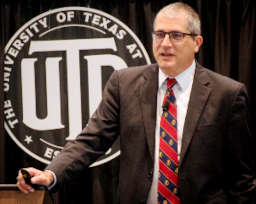
“As people’s wealth grows, we see these huge improvements in charity,” he said. “When we’re wealthier, charity is normal, and people think, ‘The government doesn’t do it all, so we’ll do what they don’t.’ ”
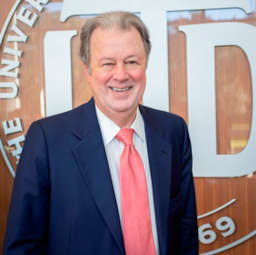
Also during the seminar, Dr. Robert Lawson, director of the O’Neil Center for Global Markets and Freedom at SMU, discussed “The World Economic Freedom Index” and how it affects prosperity in different countries. Dr. John Goodman, president, CEO and founder of the Goodman Institute for Public Policy Research, weighed the pros and cons of the Patient Protection and Affordable Care Act. Dr. Steve Horwitz, Ball State University Distinguished Professor of Free Enterprise, spoke on poverty and inequality, and Dr. Lawrence White, George Mason University professor of economics, delved into the complex world of cryptocurrency.
Dr. Hasan Pirkul, Caruth Chair and Jindal School dean, told seminar attendees that he hopes CAFÉ will grow and provide valuable lessons for all Jindal students.
“Programs like this help us educate students not just on how to make money, but on the foundation of our freedom-based system,” Pirkul said. “Hopefully our students will become passionate defenders of the free-market system.”
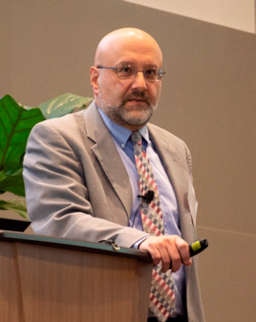
Less than a year old, CAFÉ provides fellowships to undergraduate and graduate students to help them better understand the principles of free enterprise. The seminar was an important learning tool in giving students a deeper knowledge of the topic, said Pamela Villarreal, associate director of CAFÉ.
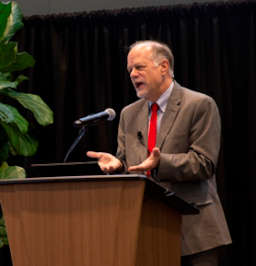
“Some students may come out of the Jindal School with great technical abilities, but without an in-depth understanding of the foundations of a free market and free trade. CAFÉ teaches them those concepts,” she said.
“Our program is small, but it’s already been very successful,” she said. “Students are learning not just about economics in general, but about all sorts of specific topics, like the regulatory barriers that make it difficult to start your own business. They’re getting a broad appreciation of all the benefits of the free market.”





